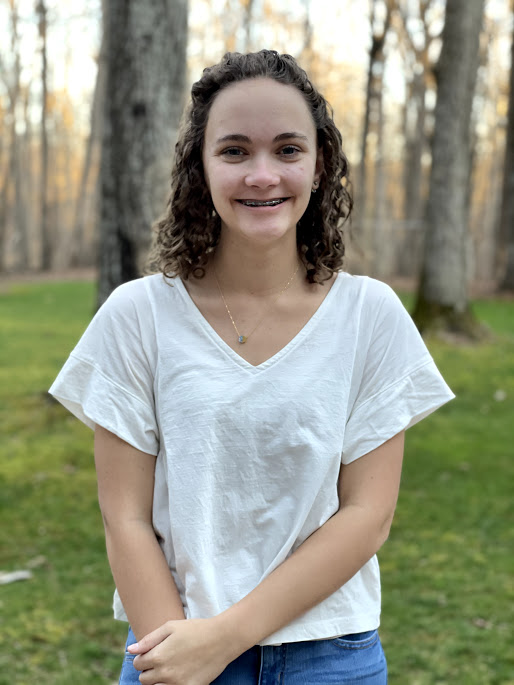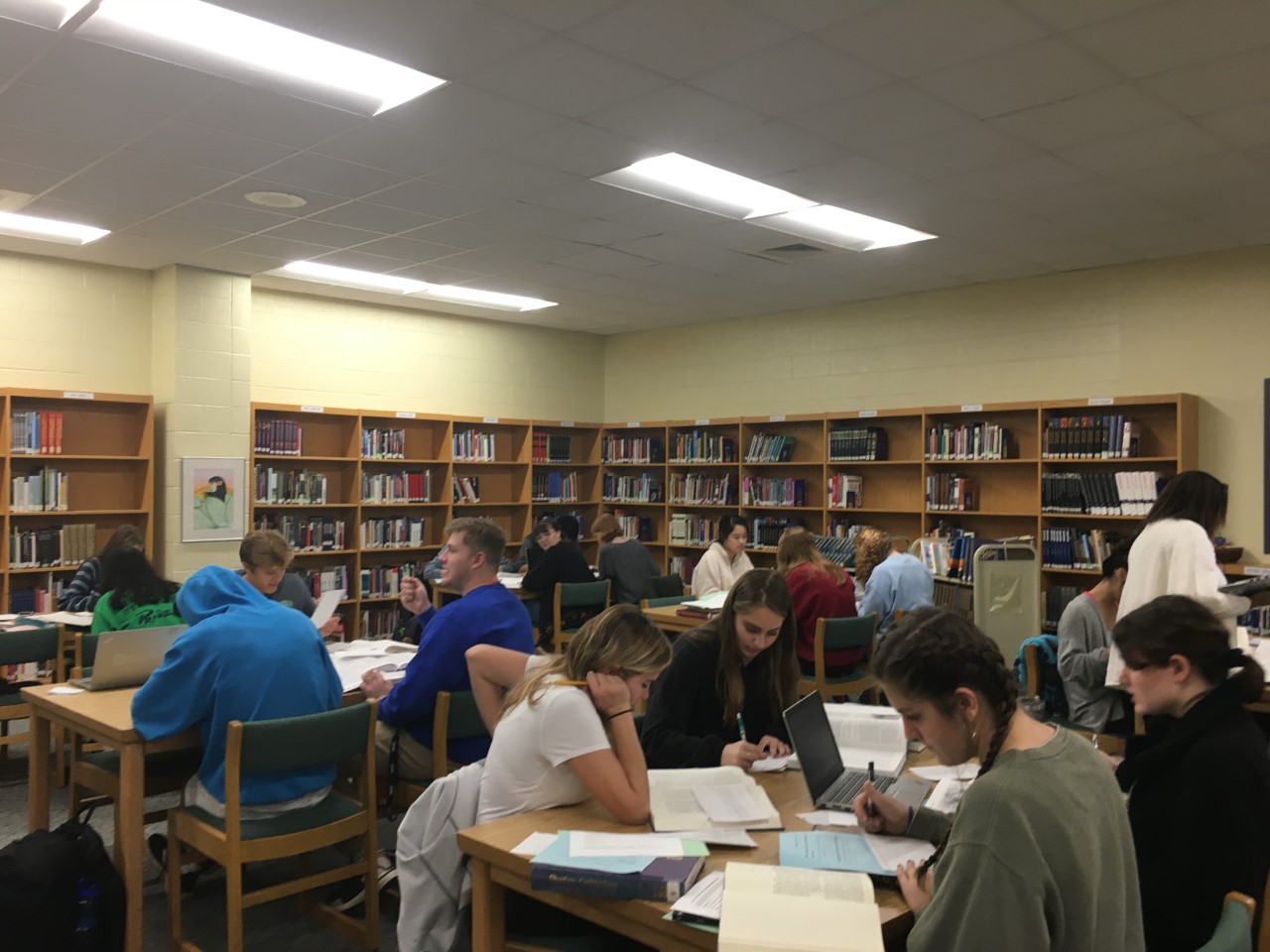Mrs. Wilkerson’s first period AP Literature class works on research projects in the library. You could hear students conversing and laughing as they worked, working diligently but enjoying their time together. (Photo Courtesy of Ellie Thompson)
Senior exemptions — every senior wants them, but do they create danger at Leesville? It’s uncommon to see juniors and underclassmen coming to school sick or injured, but seniors come in with the flu, or even after surgery.
Grades and absences determine senior exemptions, which is why seniors continue to show up at school when they should stay home. If your final grade is an A in the class, you are allowed to have three absences; with a B, you can have two, and a C can have one. If your final grade is a D or F, you are required to take the exam. If in any class you have an unexcused absence, no matter your grade, you have to take the exam. Only teacher made exams can be exempted for Leesville students.
“The idea of senior exemptions is a rite of passage,” said Kathryn Fehling, assistant principal at Leesville. As a senior, you receive many special privileges, one of which is exemptions.
Exemptions create a cycle of pressure. Wanting to get exemptions leads to coming to school sick. This can cause seniors to not work as hard in the classes they are in. Rewarding seniors for being present at school seems logical. It is ample motivation to limit the effects of senioritis — however, it can put other students in jeopardy.
It is not uncommon to hear seniors say that even in the case of extreme illness, they won’t risk losing their exemptions. “I would go pretty far to avoid having my senior exemptions taken away. As long as I’m able to focus in the classroom, [there are] not many illnesses or injuries that would prevent me from coming to school,” said Jackson Toburen, a senior at Leesville.
Students who come to school sick exposes others to the same. Most students would stay home, but seniors continue to show up. Seniors especially are worn out from college applications, working late, and long nights in general. Having no days to take a break can be taxing, and it can cause their work to suffer. “If there are a lot of people coming to school sick to get exempt from their exams, that puts other students at risk as well,” said Toburen.
College seems to be the motivation for many high school students, and once seniors have applied, incentives decrease as students think colleges can’t see their grades. In reality, transcripts are resubmitted at the end of the year. In spite of this, end-of-class tests can seem pointless, as they do not affect college applications. “Since we’ve already applied to college and potentially gotten into schools we’re committed to, I feel as if there’s no reason for us to ‘waste our time’ taking meaningless tests,” said Toburen.
If seniors can have almost no absences, it is harmful to them and their work. Is there a better solution?
`“I don’t think the one exam tells the story of how well a kid has done in the class,” said Fehling. She mentioned that the length of the exam, only two to three hours, is not as significant as it seems. If seniors have to take an exam, it shouldn’t be as influential in making health decisions.
One option is to allow all students with a set grade, such as a B or above to receive exemptions. When a student misses work but is still able to maintain their grade, it shows diligence and work ethic. No high school student wants to be bogged down by making up work — that alone is enough to increase motivation. If a student can keep up with a week’s worth of absence and sustain their grade, that should show enough mastery of the subject in itself
Leesville should not punish all absences, especially if they deem them necessary. The school could decide what absences are permitted, and those could be excused with an official note, rather than one from a parent. With a doctor’s note or a note from an appointment, absences could not be counted off from exemptions. If that were the case, in the event of major illness or injury, seniors would take the time needed to recover, not injure themselves further.
“If it’s an issue that is meaningful to the students and parents, this is a good place for us to work together to determine a better system,” said Fehling.
Exemptions are important to seniors, but they should not be jeopardizing the education of others.

Hi! My name is Ellie and I am the editor in chief for The Mycenaean. I play soccer at NCFC and go to The Summit Church!

Leave a Reply